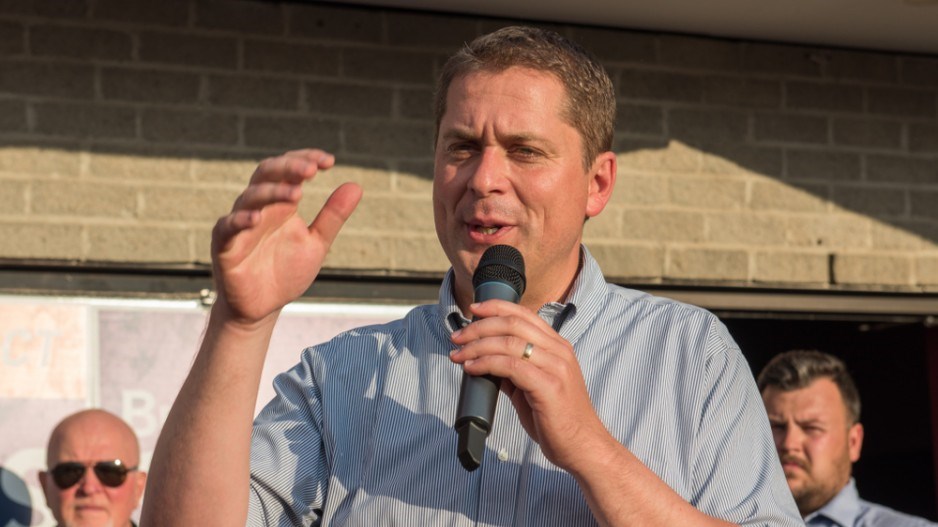Conservative leader Andrew Scheer on October 9 elaborated on how he plans to stop asylum-seeking migrants from crossing into Canada from the U.S. at unofficial border crossings.
His plan, however, relies on reaching an agreement with the U.S. government, University of British Columbia associate professor of political science Antje Elermann told Business in Vancouver. Elermann's area of academic focus is immigration and migration.
Scheer told reporters that his preferred plan of action would be to reach an agreement with the U.S., but that if this is not possible, he would look at other options.
When pressed by reporters on what other options exist, Scheer said, “we can apply the principles of the Safe Third Country Agreement (STCA) at other points along the border as well.”
Migrants cross the Canada-U.S. border into Canada at unofficial border crossings because under international law they are allowed to cross into a new country at any point and claim asylum in that country if the country is a signatory to the Geneva Refugee Convention.
Canada is a signatory to that convention as well as the STCA with the U.S.
The STCA stipulates that Canada is able to send migrants who want to claim asylum back to the U.S. if that migrant tries to enter Canada via an official border crossing. Canada is not allowed to send migrants who cross into Canada at unofficial border crossings, and claim asylum, back to the U.S.
Changing the STCA to enable Canada to send aspiring asylum seekers back to the U.S. if they try to cross the Canada-U.S. border at irregular crossings would require the consent of both countries, Elermann said.
“He would need the cooperation of the Trump administration,” she stressed.
She said that there were court rulings in the 1980s that found that Canada was required to hear claims for asylum from migrants who crossed into the country at irregular crossings.
Scheer could theoretically try to challenge those court decisions in the courts, Elermann said.
He could also pull Canada out of the Geneva Refugee Convention but “that is something that no other democracy in the world has done,” Ellerman said. “It would be a very public act.”
She said that another theoretical option could be something like what Australia did when it declared that parts of its border were not subject to Australian immigration law.
“They have in some ways undermined the Geneva Refugee Convention but they have not withdrawn from it,” she said of Australia.
During the first six months of 2019, 6,858 people crossed the Canadian border outside official border crossings to make refugee claims, according to the Immigration and Refugee Board of Canada.
To read a more detailed analysis of party positions on immigration in the 2019 Canadian election campaign, click here.




